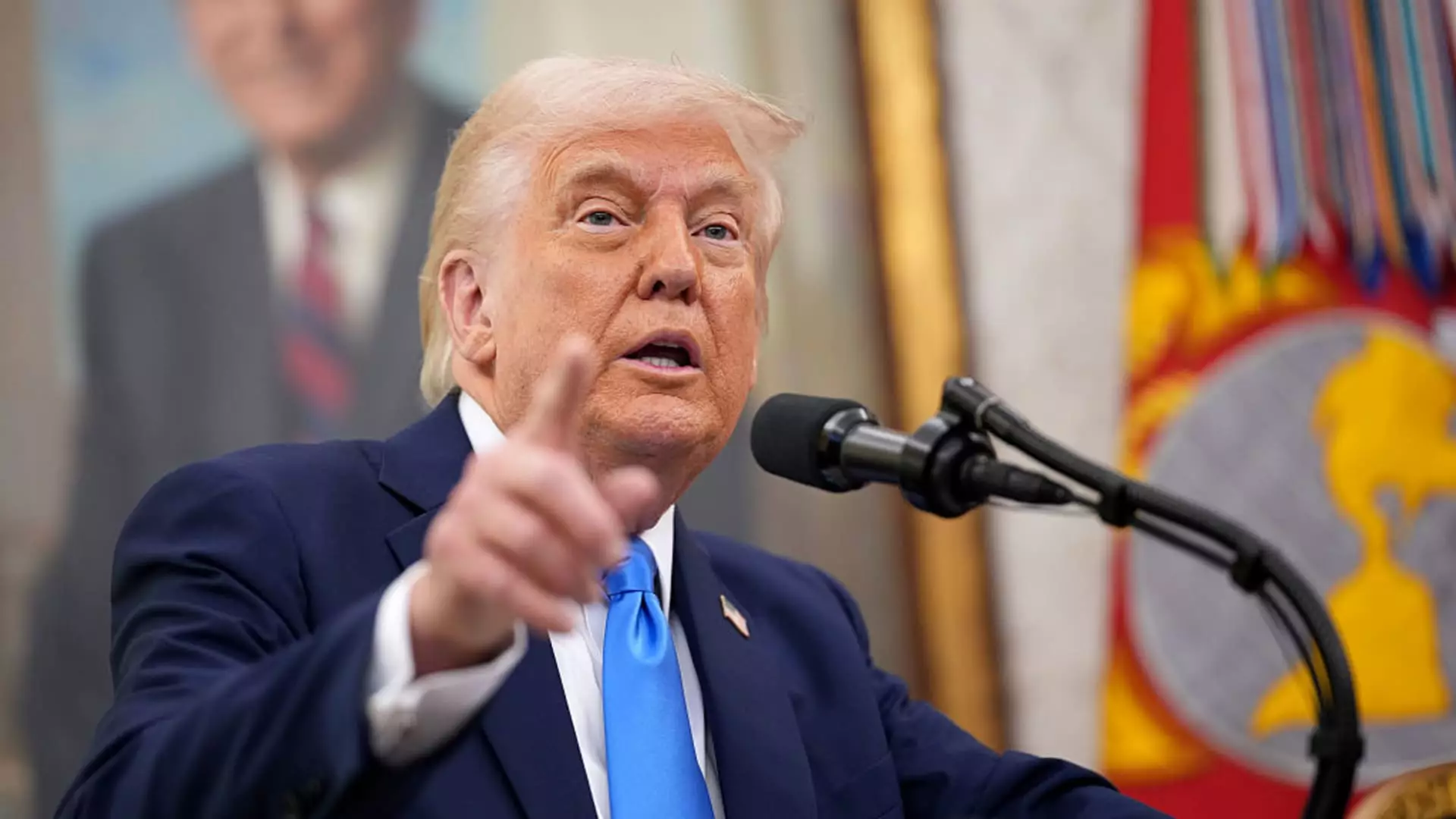As President Donald Trump prepares to unveil his most ambitious batch of tariffs yet, the atmosphere is thick with apprehension and speculation. It’s no secret that tariffs have been a cornerstone of Trump’s economic policy, but the impending announcements have amplified uncertainties surrounding the future of international trade relations. What is particularly striking is the idea of “reciprocal tariffs,” targeting countries that impose their own duties and perceived unfair trade practices on American goods. This upcoming declaration has been cavalierly dubbed “liberation day,” suggesting an almost militaristic triumphalism that is hard to reconcile with the complex realities of global trade. Rather than liberating, these tariffs may usher in economic turmoil and strain relations with key allies, demonstrating a fundamental misunderstanding of the intertwined nature of modern economies.
Economic Consequences and Policy Mystification
While Trump promotes these tariffs as a mechanism to recalibrate America’s economic standing, the administration’s lack of transparency about which countries will be specifically impacted raises red flags. Treasury Secretary Scott Bessent has spotlighted a vague “Dirty 15,” a selection of nations he believes are particularly culpable in plaguing the U.S. economy with their trade policies. Yet, this obscure labeling invites cynicism; trade deficits exist not solely due to malicious intent from other nations but also reflect the American consumer’s insatiable demand for diverse and affordable goods. The administration’s approach appears less like a strategic economic overhaul and more like an impulsive reaction to longstanding grievances.
A Targeted Approach or a Broadside Attack?
The contradictions coming from the White House only add to the confusion. While Bessent discusses a controlled number of “prime targets,” Trump himself has stated that tariffs would apply to every trading partner, implying no rational hierarchy in this punitive economic endeavor. This lack of coherence leads one to question whether Trump’s administration has a comprehensive strategy or is simply casting a wide net in search of scapegoats. Economists caution that simply slapping on tariffs will not inherently resolve trade deficits, which are often a reflection of America’s own purchasing behaviors. Instead, they argue, robust policies should focus on enhancing domestic production capabilities and investing in sustainable industries, creating jobs instead of imposing limitations that exacerbate economic rifts.
A Complicated Landscape of Trade Partners
The array of nations that could potentially face these tariffs is daunting and includes significant players such as China, the European Union, and Canada. The punitive measures threaten not only to inflame tensions but also to harm American consumers who might face increased prices for everyday goods. What’s baffling is the selective fury directed at certain countries while ignoring systemic issues within the U.S. economy itself. Tariffs may offer a quick fix to a political narrative, but they jeopardize the broader economic framework of cooperation that is essential in an increasingly globalized economy.
Pharmaceuticals and the Bigger Picture
The specter of additional tariffs on specific industries over looming threats from foreign manufacturing only compounds the confusion. The promise of tariffs on pharmaceuticals, exemplifying the administration’s broader trade policies, raises critical concerns regarding the accessibility of essential medications for American citizens. In a healthcare system already under pressure, such measures may backfire, leading to higher costs and reduced accessibility for the very constituents that the administration promises to protect.
In wrapping trade policy in a facade of nationalism, the administration ignores the essential benefits of international cooperation. The foreign goods that many Americans rely on are not merely cheaper but often represent choices that enhance quality of life. Rather than “liberation,” these tariffs may represent regression—an abandonment of the collaborative spirit that has driven economic growth in the past. The upcoming tariffs may signal a watershed moment, one that encapsulates the precarious balance between protectionism and the need for a more nuanced approach to trade that reflects our interdependence in the global economy. It’s clear that America stands at a crossroads, and if the path chosen is one burdened by tariffs and tension, it may well lead to unforeseen consequences for both the economy and international relations.

Leave a Reply